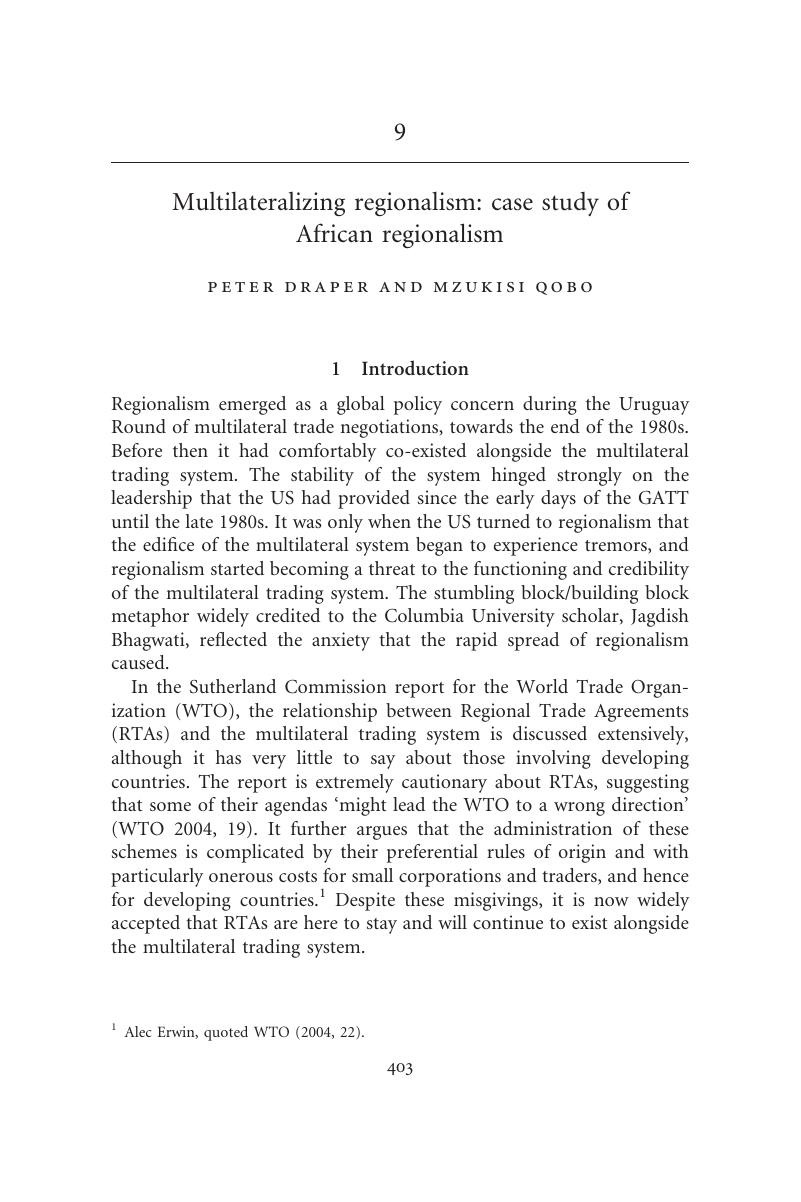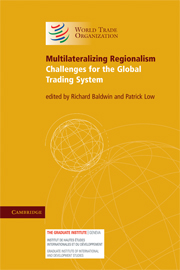Book contents
- Frontmatter
- Contents
- List of contributors
- Foreword
- Acknowledgements
- Introduction
- PART I Background to Regionalism
- PART II Multilateralization: Prospects and Past Experience
- PART III Multilateralization: Sectors and Themes
- PART IV Multilateralization: Regional Perspectives
- 9 Multilateralizing regionalism: case study of African regionalism
- 10 Multilateralizing RTAs in the Americas: state of play and ways forward
- Comment
- 11 Multilateralizing regional trade arrangements in Asia
- Comment
- 12 Fitting Asia-Pacific agreements into the WTO system
- 13 Multilateralizing preferential trade agreements: a developing country perspective
- Comment
- 14 The challenge of negotiating RTAs for developing countries. What could the WTO do to help?
- Comment
- Index
- References
9 - Multilateralizing regionalism: case study of African regionalism
Published online by Cambridge University Press: 05 March 2012
- Frontmatter
- Contents
- List of contributors
- Foreword
- Acknowledgements
- Introduction
- PART I Background to Regionalism
- PART II Multilateralization: Prospects and Past Experience
- PART III Multilateralization: Sectors and Themes
- PART IV Multilateralization: Regional Perspectives
- 9 Multilateralizing regionalism: case study of African regionalism
- 10 Multilateralizing RTAs in the Americas: state of play and ways forward
- Comment
- 11 Multilateralizing regional trade arrangements in Asia
- Comment
- 12 Fitting Asia-Pacific agreements into the WTO system
- 13 Multilateralizing preferential trade agreements: a developing country perspective
- Comment
- 14 The challenge of negotiating RTAs for developing countries. What could the WTO do to help?
- Comment
- Index
- References
Summary

- Type
- Chapter
- Information
- Multilateralizing RegionalismChallenges for the Global Trading System, pp. 403 - 426Publisher: Cambridge University PressPrint publication year: 2009



